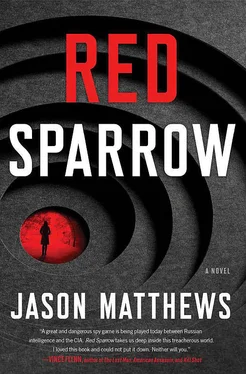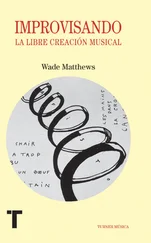“Senators, the CIA, along with the US Navy and the relevant contractor, has finished the preliminary damage assessment from the Russian illegal in New London, Connecticut.” Benford looked down at his notes. “While the Pentagon is still preparing a report on the long-term ramifications of the penetration of the navy program, initial conclusions are that the Russians did not acquire sufficient technical intelligence to materially degrade the operational viability of the platform—”
“Excuse me, Mr. Benford,” said Senator Boucher. Her fellow senators recognized the attack display and braced themselves. “Why do you use platform when you can just as clearly say submarine when talking about them?”
“Submarine, then, thank you, Senator,” said Benford. He waited for the codicil. Boucher expostulated briefly on the outmoded capabilities of US subs as compared with the Dolgorukiy class of ballistic submarines just now making their appearance in the Russian Navy. She is well-read, thought Benford. The senator swerved again.
“But wouldn’t you say that the real counterintelligence issue, the real teachable moment coming out of New London, is that neither American intelligence nor law enforcement had the wit to detect, locate, and apprehend a Russian illegal officer operating in the United States for nearly half a decade? This illegal moreover had infiltrated the program with apparent ease, despite background and security checks.” Boucher tapped a pencil on the blotter in front of her.
“Since the end of the Cold War, Senator, the classic use of illegals is extremely rare. Even the Russians acknowledge that it is a costly and inefficient way to collect intelligence,” said Benford. He would under no circumstances mention how they had gotten onto the illegal in the first place.
“That’s not at all what I asked, Mr. Benford. Pay attention. I asked which agency, in your opinion, is the more incompetent: the CIA or the FBI?”
“I have no opinion on the matter, Senator,” said Benford. “In the aftermath of the New London affair we, unfortunately, have bigger fish to fry.”
“What kind of fish?” asked Boucher.
“We have indications that the Russians are running a separate reporting source. Someone with good access. We are just starting; there’s nothing confirmed,” said Benford.
“Stop this tap dance,” snapped Boucher. “What are you talking about?”
Benford took an audible deep breath. He closed his briefing book and folded his hands on top of the cover. He looked at the Senate seal on the wall above the members’ heads. “We have fragmentary information that there is a high-level penetration of the US government with exceptional access to national security secrets currently being handled by the SVR.”
“How close are you to identifying this leak?” asked the senator from Florida.
“We do not know who, what, or where,” said Benford. “We’re checking every possibility.”
“Sounds like you don’t have the slightest idea,” said Boucher.
“Senator, these investigations take time,” offered the senator from New York.
Boucher laughed. “Yeah, I know all about these investigations. Hundreds of people keeping busy and drawing salaries, but no one seems to catch anyone.”
Benford let the members talk among themselves for a minute before raising his voice again. “As we try to develop more information, we do have an unsubstantiated report that the individual in question might suffer from an incapacitating condition—shingles. It may be useful later, as we narrow our search and begin cross-checking.”
“This is all inconclusive,” said Boucher, turning toward the dais. “If my committee colleagues have no objection, I must excuse myself for another important meeting of a separate committee.” She turned to Benford. “I’m done for today.” Boucher rose from her seat, gathered her classified folder, and walked to the door. The other senators rustled papers and fell silent as Boucher opened the massive door and left the room.
Benford did not raise his head. It was done. Fifteen of them had heard “shingles.” Two days earlier three undersecretaries of defense in a Pentagon briefing had heard the same thing, and in three days so would the special assistant to the president and senior director for Defense during a brief to selected NSC staff.
As he snapped his briefcase shut in the empty SSCI committee room, Benford pictured the jowly faces in the Kremlin and thought, You want a canary, comrades, I’ll give you a canary .
=====
General Korchnoi had been summoned to the Director’s secure conference room on the fourth floor of Yasenevo by Vanya Egorov’s aide. Dimitri had called him the instant he stepped into his office, even before Korchnoi had hung his coat in the closet and sat down to review morning traffic. It sounded urgent. The general looked wistfully at the covered plate of sirniki, hot cheese pancakes with sour cream that his secretary had left for him and that he had planned to munch as he read. They would grow cold and rubbery before he could get back. As he left his office, he rolled up one of the pancakes and stuffed it into his mouth.
Since he had discovered that Vanya was playing games, setting canary traps, dredging for the CIA mole within the SVR, Korchnoi’s double life hardened from a now-familiar baseline of danger into one of imminent, guilty dread. For fourteen years he had lived under constant pressure; he had learned to accommodate it, but there was a difference between spying undetected and being hunted.
As he pushed through the front doors of Headquarters each morning, he was never sure whether he would be greeted by stone-faced security officers who would hustle him from the lobby into a side room. Every time the phone rang on his desk, he could never know it was not a summons to a windowless room filled with unsmiling faces. Every weekend outing was a potential ambush arrest on a wooded country road or in a lonely dacha.
Korchnoi got off the elevator and walked past the portraits. Hello, old walruses, he thought. Have you caught me yet? He entered the executive conference room to see Vanya Egorov sitting on the corner of the table laughing at something Line KR Chief Alexei Zyuganov was saying. This is the little domovoi, the little goblin, who stuffed rags into prisoners’ mouths before shooting them in the forehead because their cries for mercy bothered him, thought Korchnoi. Zyuganov watched as the general walked across the room toward them.
Egorov’s big marble head glistened, and his shirt was fresh and starched. He hugged his old friend and waved him to a seat. “I wanted to meet here, Volodya, because they can set up the projector. Since you’re now directing the operation, I wanted to show you some extra material.” He picked up a remote control and pushed a button. Projected on the wall was a grainy photograph of Nathaniel Nash, hands in the pockets of a coat, hunched against the cold, walking along what looked like a Moscow street. “You wouldn’t know this man, Volodya, but he is the CIA officer Nash, who is handling the traitor. He was posted to Moscow for less than two years and left approximately eighteen months ago.”
Korchnoi wondered first whether the surveillance photo of Nate had been taken while he was on the way back from one of their meetings. Then he wondered whether this was all sarcastic drama to bait him. Would the conference-room doors burst open to admit rushing security men? Was Egorov this devious, would he be inclined to torment him this way? No, Korchnoi thought, it’s nothing. This is your life, breathe it in, circle the abyss, stay cool.
“This Nash was very skillful. But for one bungled near miss, we never were able to determine even a mote of his activities.” Egorov paused to light a cigarette. He offered the pack around the table. Korchnoi filed away the words that seemed to confirm he was still safe. Unless this was all Egorov’s elaborate red herring.
Читать дальше












